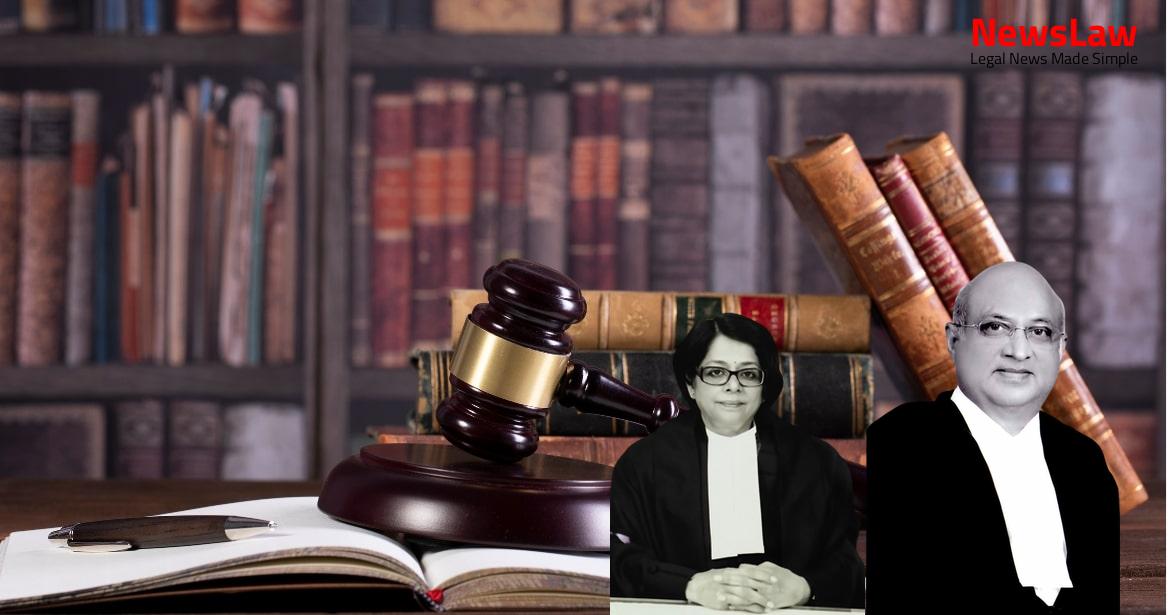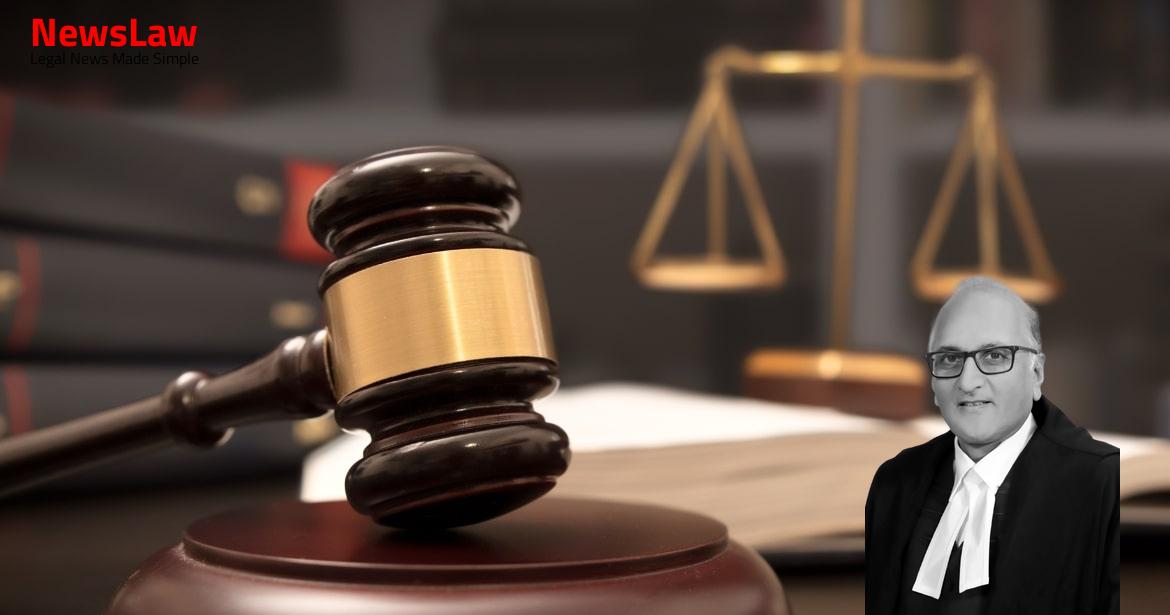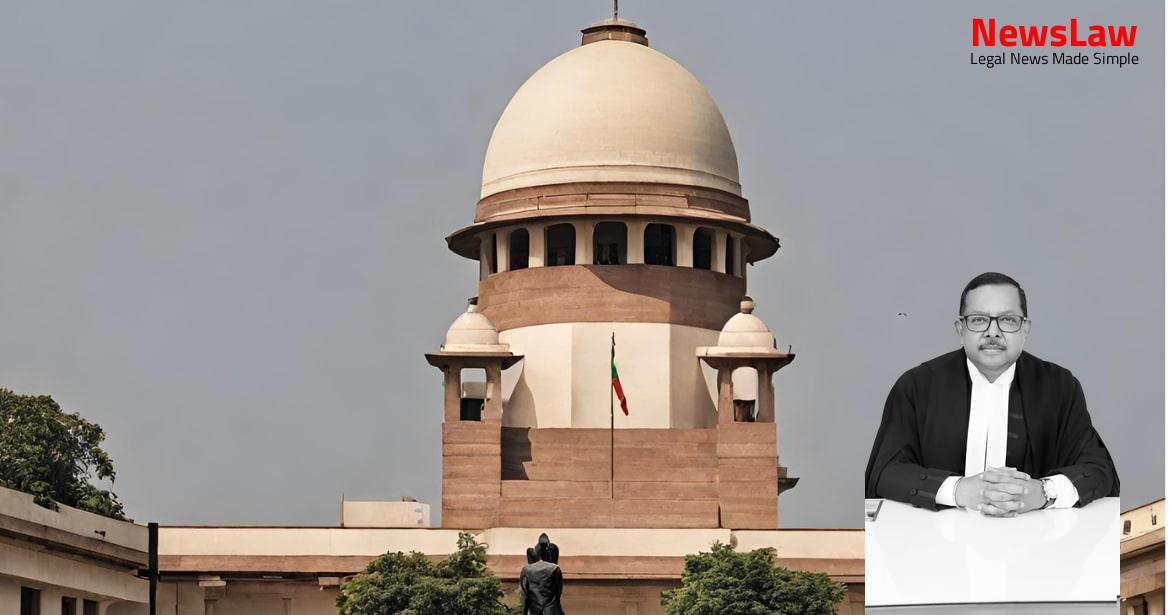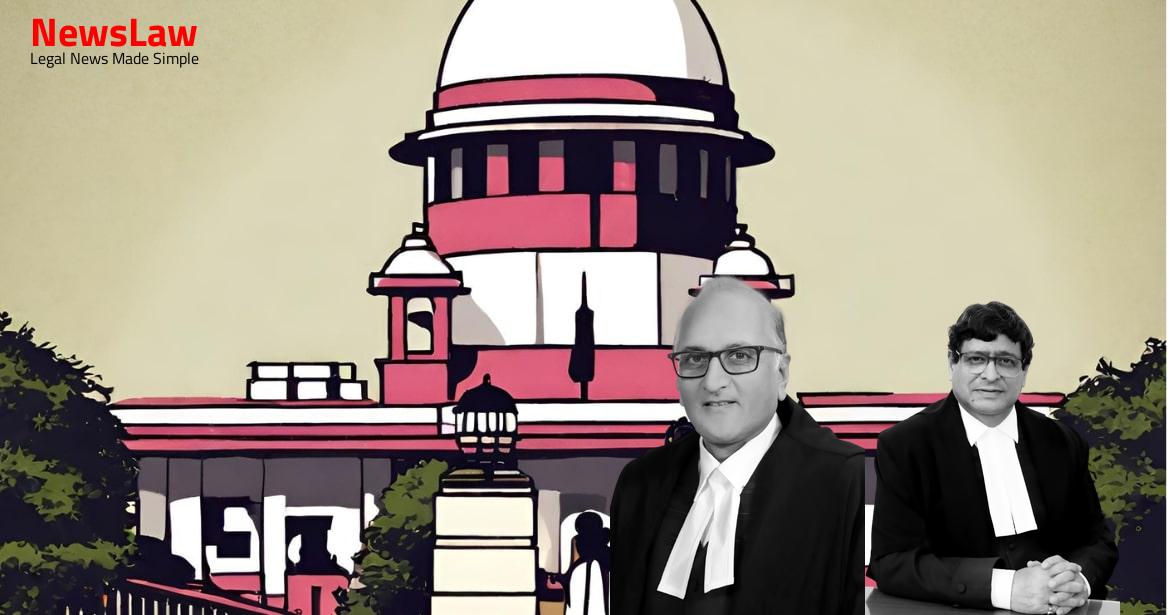In a significant legal development, the Supreme Court of India has delivered a judgment regarding the enhancement of compensation in a motor vehicle accident case. The case involves an appeal against the award passed by the Motor Accident Claims Tribunal in a matter concerning a minor victim and the insurance company. Stay tuned to understand the implications of this judgment on similar cases in the future.
Facts
- The appellant filed a claim petition against the owner/driver and insurer of the offending vehicle under the Motor Vehicles Act, 1988.
- The accident occurred when the appellant, her husband, and minor son were on a rickshaw van and were hit by a speeding Matador van.
- The appellant’s son suffered permanent disabilities due to the accident, leading to the claim for compensation.
- The Tribunal partially allowed the claim and awarded Rs. 2,00,000/- to the appellant.
- The High Court dismissed the appeal without providing any reasons.
- The appellant filed a special leave petition in this Court challenging the dismissal of the appeal.
- After hearing both counsels, the Court is inclined to allow the appeal and enhance the compensation for the appellant.
Also Read: Supreme Court Judgement: High Court’s Order Upheld in Case of [Respondent] v. [Petitioner]
Analysis
- High Court committed jurisdictional error by dismissing the appeal without appreciating the evidence or providing reasons.
- There is no perversity or illegality in the award passed by the Motor Accident Claims Tribunal.
- Doctor’s evidence proves the extent of permanent disability suffered by the minor victim.
- Insurance Company’s liability was not questioned, so it does not need to be considered.
- The appeal filed under Section 173 is similar to Section 96 of the Code of Civil Procedure, 1908.
- The scope of appellate powers under Section 173 of the Act was examined in the case of Uttar Pradesh State Road Transport Corporation vs Mamta & Ors., G. Saraswathi & Ors. vs Rathinammal & Ors. and Central Board of Trustees vs Indore Composite Pvt. Ltd.
- Courts are required to assign reasons for reaching conclusions while passing orders or judgments.
- The High Court should have considered the law laid down by the Supreme Court in the mentioned cases while deciding the appeal.
- As the High Court failed to do so, the case needs to be examined based on the evidence presented by the appellant regarding the nature of injuries to the victim-minor son and the extent of disability suffered.
- The main question in this appeal is whether the lower courts were justified in awarding Rs. 2,00,000/- to the appellant for the injuries sustained by her minor son.
- Ratios considered for enhancing the compensation award for the victim
- The victim’s age, extent of disability, medical treatment, mental pain and suffering, and loss caused
- No evidence presented by the respondents to refute the need for increasing the compensation amount
- The Tribunal’s award of Rs.2,00,000 deemed low and in need of enhancement
Also Read: Supreme Court Judgement: Settlement of Dispute after Lok Adalat Award
Decision
- A lump sum amount of Rs10,00,000/- is awarded to the appellant, who is the mother of the victim.
- The awarded amount is to be paid within 3 months.
- The amount will assist in the care and upbringing of the son, as well as cover past and future treatment expenses.
- The lump sum amount will carry 6% interest from the date of the High Court’s order.
- Upon payment, Rs.2,00,000/- along with interest awarded by the Tribunal will be adjusted by the appellant.
- Counsel fees of Rs.10,000/- is payable by the respondent to the appellant.
- The appeal is allowed.
Also Read: Definition of ‘Employee’ Under Section 2(f) of the Act Case
Case Title: RUPA ROY Vs. THE NEW INDIA ASSURANCE COMPANY LTD.
Case Number: C.A. No.-005932-005932 / 2019



